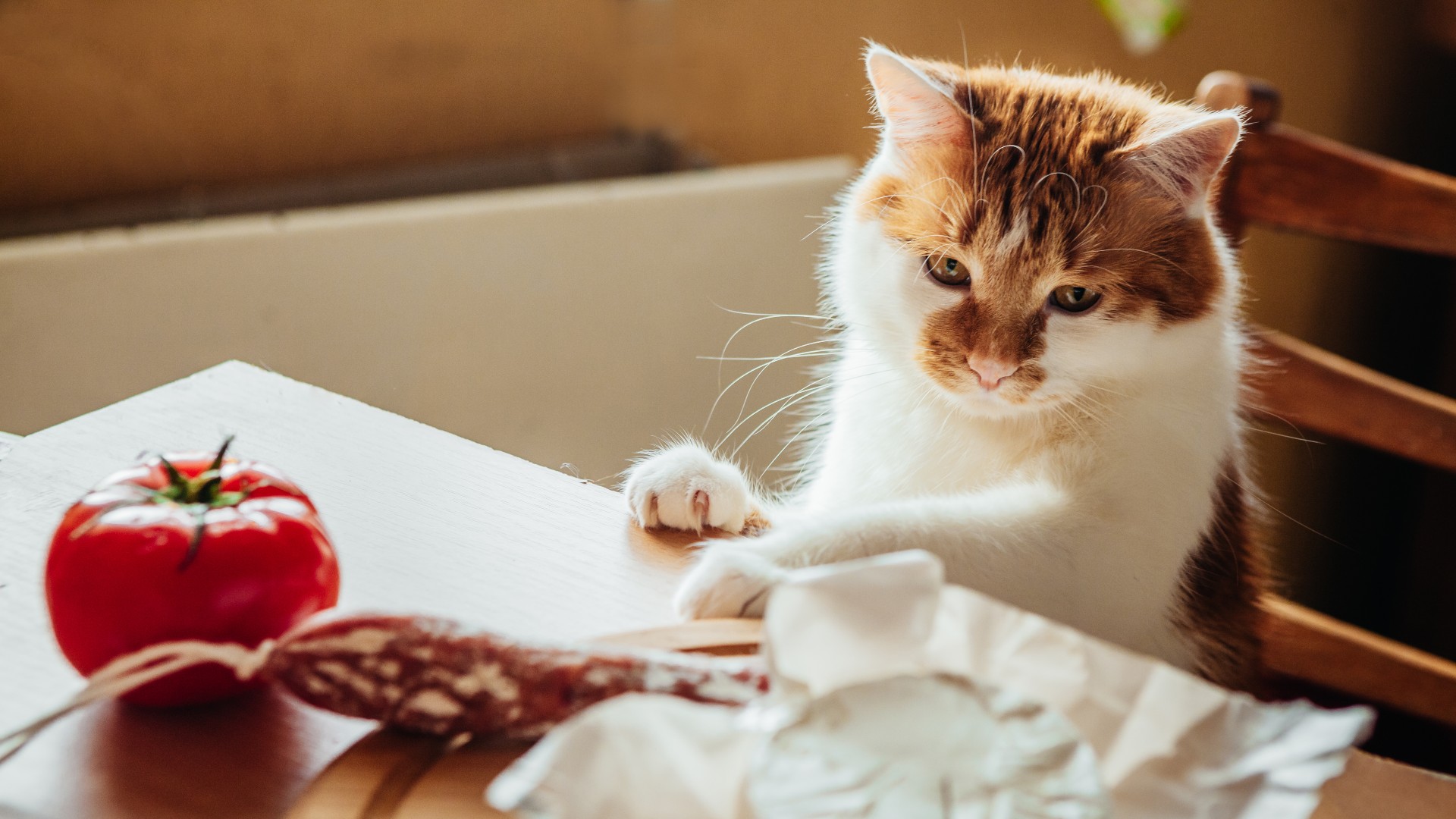Can cats eat cheese?
They certainly aren't mice, but can cats eat cheese?

Cat owners have probably asked can cats eat cheese at least once during their tenure as cat parents. And it makes sense - the often crinkly-wrapped delicacy can be very enticing to your furbabies, but it's always important to make sure they can actually eat it. There are human foods that are poisonous to cats, and you want to avoid those at all costs.
Cats love treats, and it's important to know which cat treats are healthy and safe to feed your feline friend. Even if they're getting the best cat food money can buy, your cat will probably beg for treats on more than one occasion. So, what can you give them aside from store-bought treats? Can cats eat cheese? Let’s take a closer look.
Can cats eat cheese?
Cheese is high in protein and fat, so your cat or kitten will likely gobble it right up if presented with the opportunity. But while some cats can technically eat cheese in moderation, it isn't a good treat for your feline friend. That's because, despite the long-standing cliche that cats drink milk, cats can't digest dairy. Cats are carnivores, which means all of their nutrients come from meat. Cheese may be high in protein, but it could upset a cat's delicate tummy, as they don't have a lactase enzyme that helps break down dairy. Many cats are actually lactose intolerant and can experience some mild to severe gastrointestinal upset if they ingest cheese or other dairy products.
While you may notice that your cat eats cheese without any negative side effects, cheese offers no real nutritional value to your cat, so skip it when considering cat treats.
Why is cheese bad for cats?
Cats do not have the same enzymes in their gut that humans do, including the lactase enzyme that aids in breaking down dairy products. While you may find that a small piece of cheese doesn't seem to affect your cat, many cats are lactose intolerant and may have a reaction to eating cheese - especially in large quantities. And because cheese is so high in fat, if your cat can eat cheese without getting a rumbly tummy, they may do so in excess, which can lead to obesity issues.
What to do if your cat eats cheese
If your cat eats cheese, don't panic. In many cases the situation isn't dire, but it's important that you keep an eye on your cat if they've eaten large amounts. Watch for signs of lactose intolerance like vomiting, bloating, excess gas, or diarrhea. If you see any signs of these symptoms or your cat is lethargic and not eating, it's a good idea to call your vet for advice, and maybe even make an appointment if possible.
Conclusion
Although some cats can eat cheese without presenting any negative side effects, cats lack the enzyme needed to break down dairy products. Cheese has no nutritional value to cats, who are carnivores, so when considering cat treats, avoid cheese. They may love it, but it's overall not good for them!
Get the best advice, tips and top tech for your beloved Pets
Read now: Can cats eat strawberries?
